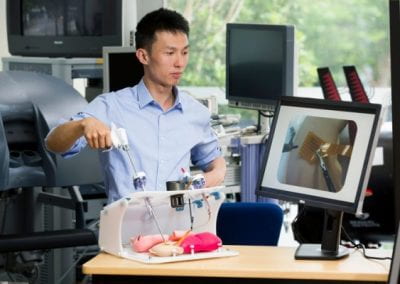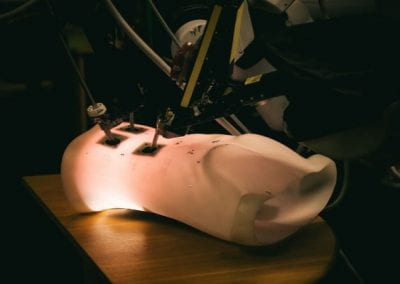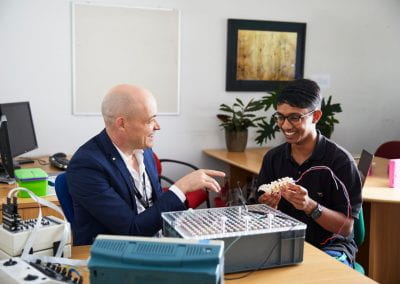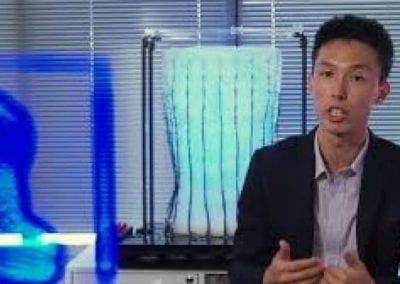Surgical Engineering Laboratory
The Surgical Engineering Lab brings clinicians, engineers and other partners together to develop new medical devices for unmet needs relevant to surgical patients. Our team bring new devices through the entire process from ideation to commercialization, including design, prototyping, translation, and validation. Our device expertise is broad, encompassing such needs as surgical retractors and catheters, medical pumps, prosthetic implants, software and apps, and invasive and non-invasive electrophysiology solutions.
Our Lab also undertakes world-class scientific investigations into physiology, particularly focused on surgical recovery, the gastrointestinal tract and functional gut disorders. Our translational programs in high-resolution gastrointestinal electrical mapping and manometry in particular have pushed forward the technical boundaries in gastrointestinal sciences, achieving multiple international awards. Our commercialization program has also contributed to the founding of New Zealand MedTech start-ups.
The Surgical Engineering Lab is Directed by Associate Professor Greg O’Grady. As both a practicing Surgeon at Auckland City Hospital, and with a PhD in bioengineering, Greg has been able to bring a blend of skills and approaches to practical research problems. He has personally invented, patented, trialed, and translated several award-winning devices to enhance diagnosis, therapy, and surgical recovery.
The Lab is based within the Auckland Bioengineering Institute, and is well-resourced with extensive rapid prototyping facilities, simulation equipment including a Da Vinci surgical robot, and expert technical staff. We also make extensive use of pre-clinical and clinical research facilities via the Faculty of Medical and Health Sciences, as well as working with a broad network of external contractors and international collaborators. Lab staff include a Surgical Engineering Technologist, fulltime post-Doctoral research fellows, and regulatory and quality system experts.
Some recent examples of technologies being developed in the Lab include:
- Chyme reinfusion devices for patients with enterocutaneous fistulas and stomas
- Non-invasive motility solutions for gastrointestinal disorders
- Natural-orifice surgical retractors
- Novel sensors for applications in surgical illness and recovery.
- Low and zero gravity studies
- Preventative technology for pandemics
- New approaches to mechanical ventilation
- Drain retention devices
- App for monitoring pain
- Monitoring and improving wound healing
- Optimising delivery of enteral nutrition




